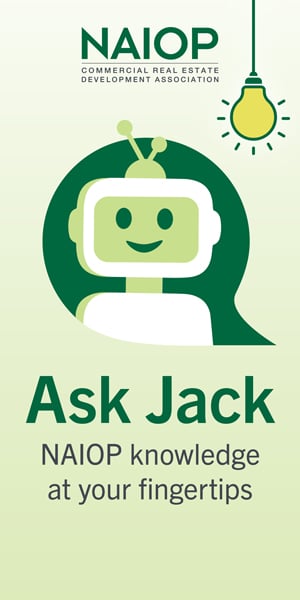The New Rate of Progress
“THE 21ST century will be equivalent to 20,000 years of progress at today’s rate of progress; organizations have to be able to redefine themselves at a faster and faster pace,” wrote author and futurist Ray Kurzweil in an essay, “Understanding the Accelerating Rate of Change.” I was fortunate to meet Kurzweil a few years ago, and if you have any interest in artificial intelligence, I encourage you to watch the 2014 science fiction movie “Transcendence,” which includes many of his predictions.

Jonathan Tratt
We see this progress all around us. Technology is rapidly revolutionizing business, politics and even fashion. Our work habits and offices are built around connectivity instead of a fixed location. We consume news 24/7 and rarely sit down to watch a live evening television broadcast. Even our wristwatches are mini-computers, alerting us to new text messages, tracking our steps and reminding us when to stand up and stretch. Our behaviors and experiences are constantly being transformed.
So too is our industry. The buildings we develop are being constructed with innovative materials; spaces are designed and wired for collaboration; employees expect to be hyperconnected and able to access everything from everywhere, anytime. “Smart buildings” have become the norm as building automation drives efficiencies and cost savings for everything from HVAC to lighting to IT networks. In April, I had the opportunity to attend the NAIOP Washington State strategic planning session, which was held at the cutting-edge Microsoft campus. We toured their innovation center and discussed how the Internet of Things (IoT) will have a profound impact on our lives in the next five years. (Microsoft is even using this technology to grow fresh produce for its employees and guests; to learn more, see “Farm-to-table Dining Goes High Tech at Microsoft.")
Likely no other parts of our industry have felt the swiftly changing times more than the industrial and retail sectors. Although these were once two separate worlds, the lines between online and brick-and-mortar retailers have been forever blurred. The protracted impact on retailers has been brutal, with retailers like Macy’s, Radio Shack, Payless and many others experiencing huge declines in revenue and closing stores throughout North America. Obviously the winner here is the industrial sector, which is benefitting from surges in demand for strategically placed distribution centers to satisfy our demand for same-day or next-day delivery of goods.
Online shopping accounts for just 9 percent of all retail sales, but its impact on the job market is vast. While new jobs in e-commerce have doubled since 2012, this growth hasn’t absorbed the job losses at traditional retailers. This reduction in actual employment may be attributed to e-commerce fulfillment being a less labor-intensive industry, thanks to robotics and automation. E-commerce positions are largely located in big cities and tech hubs, not in the rural areas where retailers are reducing workforces or closing doors.
The hotel and resort industry is also being disrupted. In less than a decade, Airbnb has emerged as one of the most valuable private companies in the world. Estimates show that nights booked through Airbnb could hit $18 billion in 2017; that’s $2.5 billion in revenue for a company that is expected to go public soon.
In the commercial real estate industry, we must keep pace as yesterday’s solutions no longer work in our quickly changing world. This is where your NAIOP membership is of paramount value. You have the opportunity — through your chapter, the National Forums, our educational programs, in advocacy efforts, and through NAIOP publications and research — to stay ahead of the trends driving change and take advantage of the opportunities that abound.
I invite you to join me and 1,500 of CRE’s top developers, owners and investors at NAIOP’s fall conference, CRE.Converge 2017, October 10-12, in Chicago. You’ll be able to talk with the problem solvers, the innovators, the seasoned leaders whose expertise and guidance will help you navigate the curves ahead. I urge you to make this a priority. Don’t miss it! I look forward to meeting you there.
![]()
Jonathan Tratt, principal, Tratt Properties, LLC, and 2017 NAIOP Chairman







